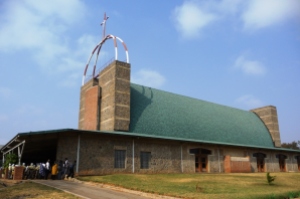 By Jos Kuppens, M.Afr, Director of CfSC, Kanengo, Malawi
By Jos Kuppens, M.Afr, Director of CfSC, Kanengo, Malawi
Recently it has been alleged that Malawi has been classified as the poorest nation. The report’s empirical analysis of poverty was based on income or consumption expenditure as a measure of wellbeing. But the weak correlation between income (or consumption) and welfare, means income may not be an all-encompassing indicator of welfare. Just as Amartya Sen urges, poverty measurements should go beyond income and look at other dimensions of wellbeing such as health, education, empowerment, freedom of association and so on. Income is often instrumentally important as a means of achieving other dimensions of wellbeing, but the other dimensions of wellbeing are intrinsically significant, and hence deserve recognition.
While many people were up in arms following such revelations, the nation needs reminding that the results of this recent report somehow tally with previous ones. In 2013 a Multidimensional Poverty Index (MPI) study by Oxford University said Malawi needs at least 74 years to eradicate its poverty. The study measured reductions in multidimensional poverty, overlapping deprivations in health, education and living standards among others. The study concluded that “using this measure, it was found that reductions in intensity – the percentage of deprivations people experience at the same time – were strongest in relatively poorer countries such as Ethiopia, Malawi and Senegal”; and at the then rate of 50.7% reduction it would take Malawi 74 years to eradicate acute poverty.
In 2012 the results of the Third Integrated Household Survey (IHS3), showed that almost half of the Malawi’s population is poor, about one in every four poor lives in dire poverty and cannot afford to meet the minimum standard for daily recommended food requirement.
 Already in January, the Rural Basic Needs Basket indicated that the average daily calorie intake for rural areas of Chikwawa, Dedza, Zomba and Lilongwe was at an average of 1169kcal; which is 1231kcal below the daily recommended calorie intake of 2400kcal by WHO and the situation was worse in Kasiya-Lilongwe, which stood at 970kcal per person per day. For the Urban Basic Needs Basket, the average cost just for the basic food items stood at MK77, 320 for Blantyre Lilongwe, Zomba, Mzuzu, Karonga and Mangochi; the highest was in Zomba at MK86, 783.
Already in January, the Rural Basic Needs Basket indicated that the average daily calorie intake for rural areas of Chikwawa, Dedza, Zomba and Lilongwe was at an average of 1169kcal; which is 1231kcal below the daily recommended calorie intake of 2400kcal by WHO and the situation was worse in Kasiya-Lilongwe, which stood at 970kcal per person per day. For the Urban Basic Needs Basket, the average cost just for the basic food items stood at MK77, 320 for Blantyre Lilongwe, Zomba, Mzuzu, Karonga and Mangochi; the highest was in Zomba at MK86, 783.
What this entails is that there are indications that many people in the country cannot afford a dignified life and others are trapped in dire poverty. So instead of denying these facts the country needs to wake up and do something about this dire situation. Instead of being angry at these reports the country needs to be angry enough to do something about it, so that it would no longer be defined as such in the near future.
Let us start with the current disaster in the lower Shire. Each year flood disasters occur in this region. There is need for proper planning and political will to manage it. It must be remembered that disaster risk reduction benefits the poor more than disaster management does. Many research reports in countries like India have shown that for every dollar invested in disaster risk reduction, between two and four dollars are returned in terms of avoided or reduced disaster impact costs. The country needs to increase investment in disaster risk management and climate change mitigation measures, such as canalization, winter cropping and IGA interventions as an effective ways to reduce the disaster vulnerability of the poor and thereby improve overall economic development. Invest in social services that improve social conditions, such as universal education, health, access to water and sanitation, thereby reducing the vulnerability of the poor and improving their capacity to respond to, cope with and adapt to disaster and poverty impacts more effectively. Surprisingly or not, those who were angry with the report were not the poor too busy to survive, but rather those who somehow work towards the eradication of poverty. Should they not also need to ask the question whether the Gross Domestic Product is divided among all Malawians with some degree of equity?
 Aujourd’hui, les Missionnaires d’Afrique de l’Ouest vous proposent de visiter de nouvelles pages sur leur site www.mafrwestafrica.net :
Aujourd’hui, les Missionnaires d’Afrique de l’Ouest vous proposent de visiter de nouvelles pages sur leur site www.mafrwestafrica.net :





































